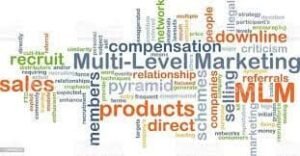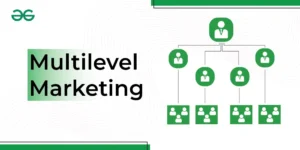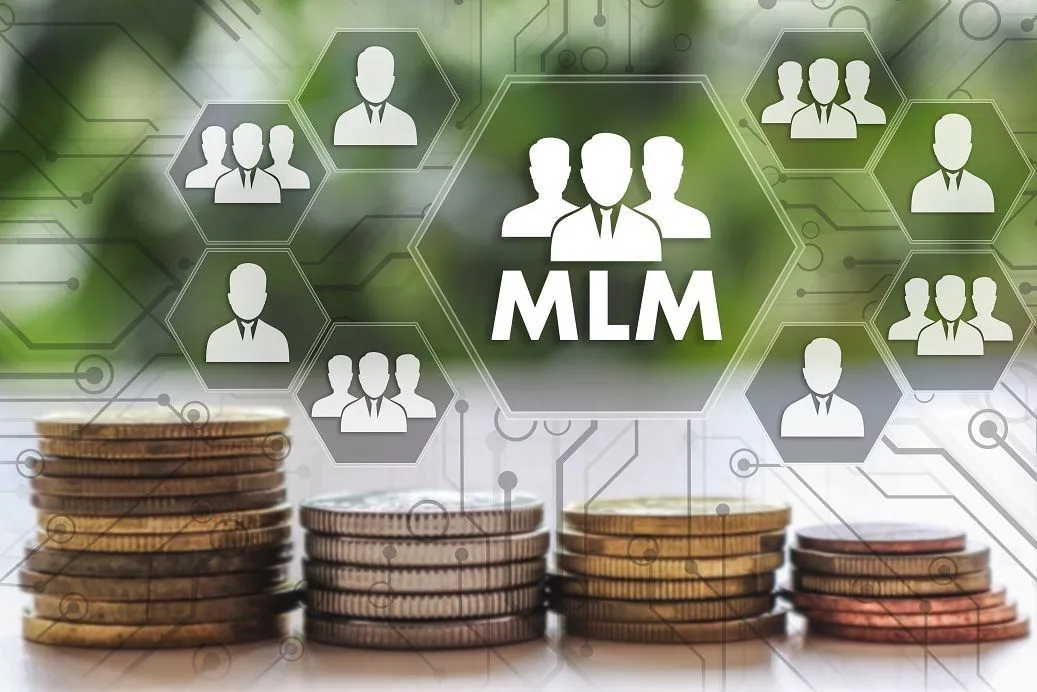The brief introduction to the critical analysis of Multi-Level Marketing Scheme sets the stage for a focused examination of this business model. In this concise overview:
Multi-Level Marketing Scheme has become a pervasive and often polarizing method of business, characterized by a hierarchical structure and emphasis on recruitment. This short analysis aims to dissect the key elements of Multi-Level Marketing Scheme, scrutinizing its historical evolution, ethical implications, legal standing, and broader impact. By navigating through these dimensions, we seek to unravel the complexities surrounding MLM, offering a nuanced understanding of its merits and pitfalls.
Historical Context

The historical evolution of Multi-Level Marketing Scheme unveils a narrative shaped by innovation, controversy, and transformative business practices. This section delves into key milestones, tracing the development of Multi-Level Marketing Scheme from its inception to its present-day prominence.
Emergence of MLM Concepts
- Exploration of early precedents and influencers that laid the groundwork for MLM.
- Identification of the first instances of MLM-like structures and hierarchical sales models.
Post-War Expansion and Direct Selling
- Examination of MLM’s growth during the post-World War II economic boom.
- Integration of direct selling and network building as essential components of MLM.
Amway and the Rise of Modern MLM
- In-depth analysis of Amway’s role in popularizing the MLM model.
- The impact of Amway’s success on the proliferation of similar business ventures.
Legal Challenges and Regulation
- Discussion of landmark legal cases and regulatory responses to MLM practices.
- The evolution of laws governing MLM to address ethical concerns and fraudulent activities.
Technological Advancements and MLM
- Exploration of how technological advancements, especially the internet, have influenced MLM strategies.
- The role of social media and online platforms in reshaping MLM dynamics.
Globalization and MLM
- Examination of MLM’s expansion into international markets.
- Consideration of cultural influences and regulatory variations impacting MLM’s global trajectory.
Understanding the historical context is crucial for grasping the roots and evolution of Multi-Level Marketing Scheme. By tracing the development of MLM, we gain insights into the factors that have shaped its structure, practices, and the ongoing debates surrounding its legitimacy and impact.
Core Characteristics of MLM Schemes

Multi-Level Marketing Scheme are characterized by a distinctive set of features that distinguish them from traditional business models. At the heart of Multi-Level Marketing Scheme lies a pyramid-shaped structure where participants, often referred to as distributors or representatives, engage in direct selling of products or services.
The primary hallmark of MLM is the emphasis on recruitment, where existing participants are incentivized to bring in new members, forming a hierarchical network. Compensation plans in MLM typically reward participants not only for their direct sales but also for the sales generated by those they recruit, creating multiple levels of income distribution.
Another defining feature is the focus on building a network that extends beyond personal sales efforts, creating a dynamic where success is often measured by the size and activity of one’s downline. These core characteristics contribute to the unique and sometimes controversial nature of Multi-Level Marketing Scheme, fostering both fervent support and criticism in equal measure.
Understanding these foundational elements is essential for a comprehensive analysis of the ethical, legal, and economic implications associated with Multi-Level Marketing Scheme.
Ethical Concerns
Ethical Concerns in Multi-Level Marketing Scheme
The ethical dimensions of Multi-Level Marketing Scheme have been a subject of ongoing scrutiny and debate. Several key concerns arise from the inherent structure and practices associated with Multi-Level Marketing Scheme, prompting a closer examination of the ethical implications involved.
Exploitative Recruitment Tactics:
MLM often employs aggressive recruitment strategies, emphasizing financial gains and lifestyle improvements. This can lead to the recruitment of individuals who may be financially vulnerable or susceptible to promises of quick wealth, raising questions about the fairness and transparency of the recruitment process.
False Income Expectations and Misrepresentation:
Ethical concerns stem from the tendency of some Multi-Level Marketing Scheme representatives to exaggerate potential earnings and downplay associated risks.
This misrepresentation can mislead participants, fostering unrealistic expectations and contributing to financial hardships for those who invest in the scheme.
Impact on Personal Relationships and Social Dynamics:
MLM’s emphasis on building networks and recruiting friends and family can strain personal relationships. The potential for financial gain may clash with ethical considerations, as individuals are encouraged to profit from the involvement of those close to them, creating ethical dilemmas within personal and social circles.
Addressing these ethical concerns is pivotal for a comprehensive evaluation of Multi-Level Marketing Scheme. The ethical landscape is intricate, requiring a nuanced understanding of the balance between individual entrepreneurial opportunities and the potential exploitation or harm that can result from certain Multi-Level Marketing Scheme practices.
This analysis aims to shed light on these ethical considerations, fostering a more informed dialogue surrounding the ethical implications of participating in or promoting Multi-Level Marketing Scheme ventures.
Legal Landscape

Legal Landscape of Multi-Level Marketing Scheme
Navigating the legal terrain of Multi-Level Marketing Scheme is a complex undertaking, marked by a myriad of regulations, precedents, and ongoing debates. This section aims to dissect the multifaceted legal dimensions surrounding MLM, shedding light on the evolving landscape.
Legitimacy and Regulatory Framework:
MLM’s legal standing varies across jurisdictions, with some countries strictly regulating or even banning certain MLM practices. This analysis explores the diverse regulatory frameworks in place, considering factors such as disclosure requirements, registration obligations, and permissible compensation structures.
Landmark Legal Cases:
Examination of pivotal legal cases involving MLM companies provides insights into how courts interpret MLM practices. This includes cases where companies faced legal challenges related to pyramid schemes, deceptive practices, or failure to deliver promised earnings.
Regulatory Responses to Ethical Concerns:
Governments and regulatory bodies respond to emerging ethical concerns within the MLM industry by updating and enforcing laws. Analyzing these responses provides a gauge of how authorities address issues such as misrepresentation, exploitative recruitment, and the overall ethical conduct of MLM businesses.
Enforcement Challenges and Loopholes:
Despite regulations, enforcement challenges and legal loopholes persist. This section investigates instances where regulatory frameworks fall short and explores potential remedies or enhancements to better safeguard participants and prevent fraudulent practices.
International Perspectives:
MLM’s global nature necessitates an examination of how different countries approach its regulation. Contrasting legal approaches and their effectiveness in curbing unethical MLM practices contribute to a comprehensive understanding of the international legal landscape.
Understanding the legal landscape surrounding MLM is crucial for participants, regulators, and policymakers alike. This analysis seeks to provide clarity on the legal dynamics, contributing to informed discussions on the efficacy of current regulations and potential areas for improvement within the MLM industry.
Economic Realities Multi-Level Marketing Scheme
The economic dimensions of Multi-Level Marketing Scheme reveal a complex landscape that intertwines entrepreneurial aspirations with stark financial realities. MLM proponents argue that it offers a unique avenue for individuals to achieve financial success through direct selling and team building. However, a critical analysis uncovers several economic realities that warrant scrutiny.
Studies consistently show that a significant percentage of MLM participants earn modest incomes or experience financial losses, challenging the widespread notion of lucrative opportunities. The hierarchical structure, which rewards recruitment alongside sales, often results in income disparities, with a select few at the top benefiting disproportionately.
Economic success in MLM is contingent not only on individual sales skills but also on the recruitment prowess and efforts of one’s downline, introducing a level of uncertainty that contrasts with the promised financial independence. This analysis delves into the economic nuances of MLM, examining participant success rates, income distribution patterns, and the broader economic implications of a model that intertwines personal financial gains with the recruitment endeavors of others.
Consumer Awareness and Protection

Ensuring consumer awareness and protection within the realm of Multi-Level Marketing (MLM) is a paramount consideration, given the potential risks and complexities associated with this business model. The intricate compensation structures, recruitment-focused incentives, and varying product qualities demand a vigilant and well-informed consumer base.
This analysis delves into the tools available for consumers to evaluate MLM opportunities, emphasizing the importance of transparent and accurate information regarding earnings potential, product quality, and associated risks. Educational initiatives aimed at enhancing consumer literacy on MLM practices become crucial, empowering individuals to make informed decisions.
Furthermore, the examination of regulatory frameworks and their enforcement mechanisms plays a pivotal role in safeguarding consumers from deceptive practices and ensuring the accountability of MLM companies. By shedding light on consumer awareness and protection aspects, this analysis aims to contribute to the ongoing discourse on striking a balance between entrepreneurial opportunities and safeguarding individuals from potential pitfalls within the MLM landscape.
Related Topics
Multi Level Marketing Malaysia
Conclusion
In conclusion, the critical analysis of Multi-Level Marketing Scheme reveals a nuanced landscape marked by both opportunities and challenges. The historical trajectory, core characteristics, ethical concerns, legal intricacies, economic realities, and consumer dynamics collectively paint a complex picture. While MLM offers entrepreneurial possibilities for some, its structure and practices often raise ethical questions and legal uncertainties.
The economic disparities among participants and the potential impact on personal relationships add further dimensions to the discourse. Recognizing the importance of consumer awareness and protection becomes imperative in mitigating risks associated with MLM.
As discussions surrounding the ethicality and legality of MLM continue, this analysis underscores the need for informed decision-making, regulatory scrutiny, and ethical business practices to foster a more sustainable and equitable landscape within the MLM industry.
Other questions
What are the criteria for MLM?
For an MLM to be compliant (i.e., legal and not a pyramid scheme), it must adhere to the 70% rule that “at least 70% of all goods sold must be purchased by non-distributors.
What is the significance of multi-level marketing?
A company can gain access to a large customer base in a wide geographical range through multilevel marketing. Since the distributors are independent, the company does not need to pay any fixed salaries, but only commissions when sales are made, which allows it to save sales expenses.
What is a multilevel marketing scheme?
Businesses that involve selling products to family and friends and recruiting other people to do the same are called multi-level marketing (MLM), network marketing, or direct marketing businesses. Some MLMs are illegal pyramid schemes.




